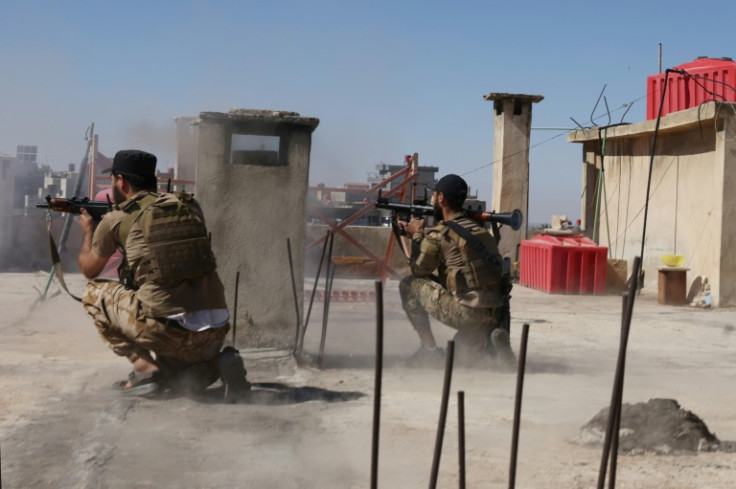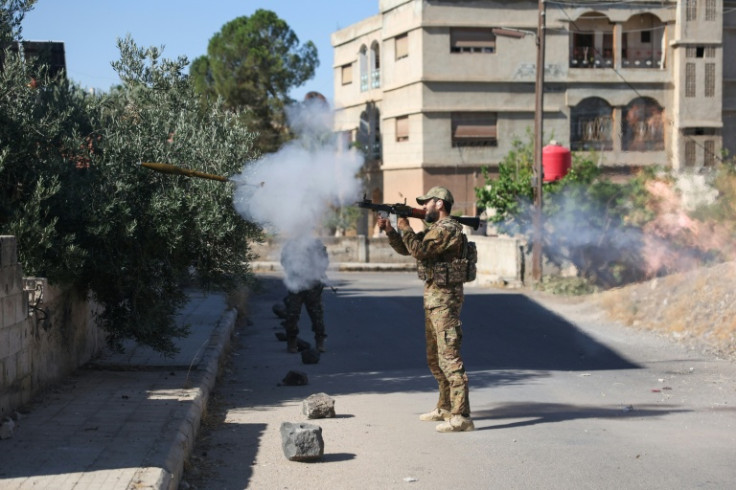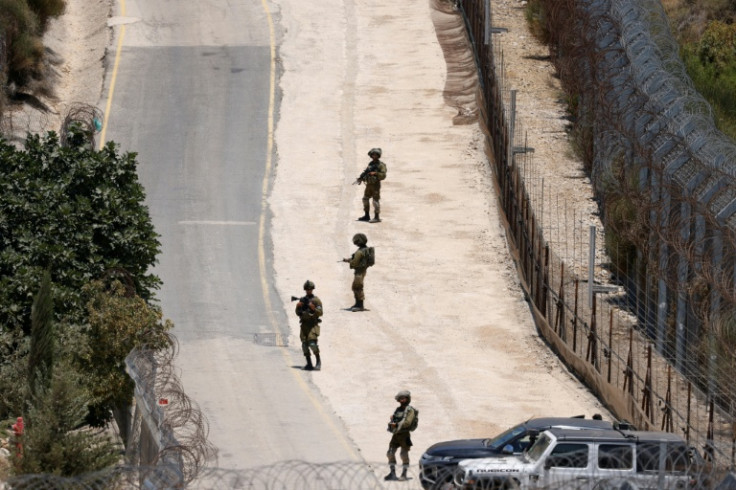Israel Bombs Syria Army HQ After Warning Damascus To Leave Druze Alone

Israel bombed the Syrian army headquarters in Damascus on Wednesday after warning the Islamist-led government to leave the Druze minority alone in its Sweida heartland, where a war monitor says sectarian clashes have killed nearly 250 people.
Syrian government forces on Tuesday entered the majority-Druze city of Sweida, in the country's south, with the stated aim of overseeing a ceasefire agreed with Druze community leaders after clashes with local Bedouin tribes left dozens dead.
However, witnesses reported that the government forces joined with the Bedouin in attacking Druze fighters and civilians in a bloody rampage through the city.
The fighting marks the most serious outbreak of violence in Syria since government forces battled Druze fighters in Sweida province and near Damascus in April and May leaving more than 100 people dead.
The Islamist-led authorities have had strained relations with Syria's patchwork of religious and ethnic minorities since they toppled longtime leader Bashar al-Assad in December.
Israel has presented itself as a defender of the Druze, although some analysts say that is a pretext for pursuing its own military goal of keeping Syrian government forces as far from the border as possible.
Syrian state TV reported several Israeli strikes on Wednesday near the army and defence ministry headquarters in central Damascus, and Israel's military said it had "struck the entrance of the Syrian regime's military headquarters".
AFP images showed the side of a building in the defence complex in ruins after the strike, as smoke billowed over the area.
The Syrian health ministry said in a preliminary toll that nine people were wounded in the strikes.
Israeli Defence Minister Israel Katz called on Damascus to "leave the Druze in Sweida alone", later threatening in a statement to unleash "painful blows" to "eliminate the forces that attacked the Druze until their full withdrawal" from Syria's south.
Israel, home to tens of thousands of Druze, said it was sending more troops to the armistice line between the occupied Golan Heights and Syrian-controlled territory.
Dozens of people were trying to cross the heavily fortified frontier, according to AFP correspondent in Majdal Shams, a mainly Druze town in the Israeli-annexed Golan.
Prime Minister Benjamin Netanyahu urged Druze not to cross, warning of a "very serious" situation in Sweida.
A military statement said Israeli forces were "operating to prevent the infiltration" from Syrian territory and to "safely return the civilians who crossed the border" from the Israeli-controlled side.
Netanyahu said in February that southern Syria must be completely demilitarised, warning that Israel would not accept the presence of forces of the Islamist-led government near territory it controls.
The head of the Druze community in Israel, Sheikh Mowafaq Tarif, called the situation "an existential battle for the Druze community".
The Syrian Observatory for Human Rights monitor has said at least 21 Druze civilians had been killed "in summary executions by government forces".
The Syrian presidency condemned in a statement the "heinous acts" in Sweida, expressing "full commitment to investigating all related incidents and punishing all those proven to be involved".
Sporadic gunfire continued to ring out in Sweida on Wednesday, an AFP correspondent reported.
Columns of smoke were seen rising from several areas amid the sound of shelling.
The correspondent counted the bodies of around 30 combatants, some in plain clothes and some in military uniform.
The Observatory, witnesses and Druze armed groups have said government forces took part in fighting alongside the Bedouin against the Druze.
The Syrian defence ministry accused "outlaw groups" of attacking its forces inside the city, saying they are now "continuing to respond to the sources of fire".
The Bedouin and the Druze have been at loggerheads for decades.
The latest violence erupted after the kidnapping of a Druze vegetable merchant triggered tit-for-tat abductions, the Observatory said.
Since they toppled Assad in December, Syria's Islamist authorities have been accused repeatedly of trampling over the rights of the country's religious and ethnic minorities.
The United States, a close ally of Israel, said that "all parties must step back and engage in meaningful dialogue that leads to a lasting ceasefire" in Sweida.
Washington's special envoy for Syria, Tom Barrack, added on X that the "perpetrators need to be held accountable".
France said that "the abuses targeting civilians, which we strongly condemn, must stop", while the European Union urged "all external actors" to "fully respect Syria's sovereignty".



© Copyright AFP 2025. All rights reserved.





















